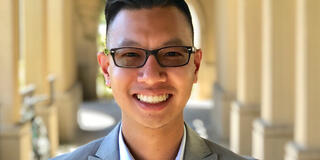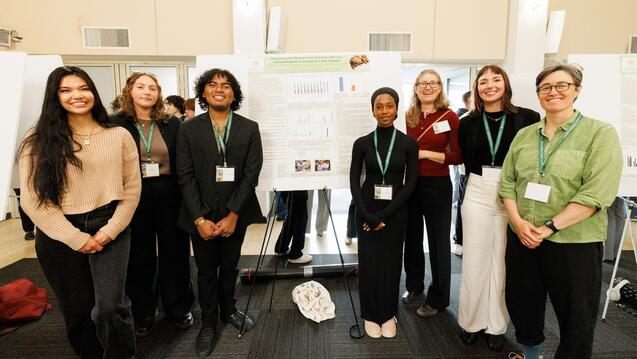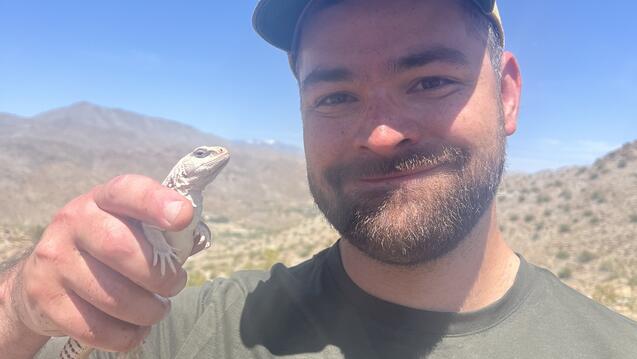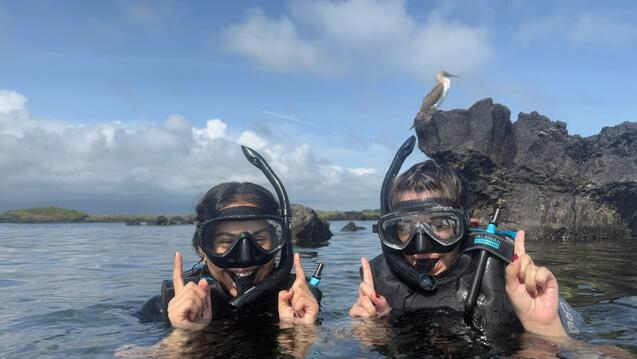Meet Eric Young '16

The biology alum talks about how he learned to “think like a scientist” and how USF fostered his drive to help San Francisco citizens.
Why did you choose USF?
For its mission, for its location, and for its opportunities. USF's mission, to "Change the World From Here," captures what makes it a unique institution. I grew up in San Francisco, seeing the city transform in its identity from a cultural mosaic to the tech capital of the world. With it, I saw world-class restaurants, first-of-its kind technological innovations, and global impact companies spring up in our backyard. But, I also saw a widening wealth divide that threatened the future of the very people that kept (and keeps!) this city running. I knew I wanted to be in a place where I could impact this problem and with people that cared, too. I found that USF capitalizes on both worlds — driving innovation and service to humanity. I loved seeing the smaller class sizes that enabled professors to challenge you without leaving you unsupported. Yet USF does not restrict its lessons to the classroom; it encourages students to extend out, learn from practice, and help real people. Through partnerships with researchers at UCSF, community nonprofits, and SF based companies, we had a chance to really make an impact on the city and the world.
How did your USF degree prepare you for this position?
I trained as an evolution/developmental biologist. Though I'm no longer directly in the world of research, I left with the skills to "think like a scientist." In my current role as a consultant for Kaiser Permanente, we work with our clinical leaders and partners to create new ways to better take care of patients. Almost every project I work on has no perfect precedent or playbook; we dive into the ambiguous and come up with a plan to get to our goal. Thinking like a scientist prepared me well for this type of work. How do we determine what critical gap of knowledge exists? How do we test assumptions? And how do we analyze to draw conclusions on what to do next? As an added bonus, developing a strategy isn't too different from a cell signaling pathway — what has to come first, what is necessary/sufficient, how do all these pieces fit together to form an effective structure? In short, building solid critical thinking skills has been a great source of value in my career.
What impact do you hope your work in this field will have?
I hope to play a part in creating things that allow people to enjoy life. Health is sadly a big factor in this country that can keep people from enjoying what they love. For those in lower socio-economic situations with few resources and many obligations, this can be even more likely. To champion innovations that keep the person at the center, and treat them as a person and not a disease or problem is my ultimate goal. For example, a project I work on now is Kaiser's Hospital at Home program. For patients who have certain conditions that would normally require them to be admitted into an inpatient bed, isolated from their family, we create a way to care for them safely in their home instead. We've heard great things from patients thankful to have had that option and their stories give me a lot of joy.


